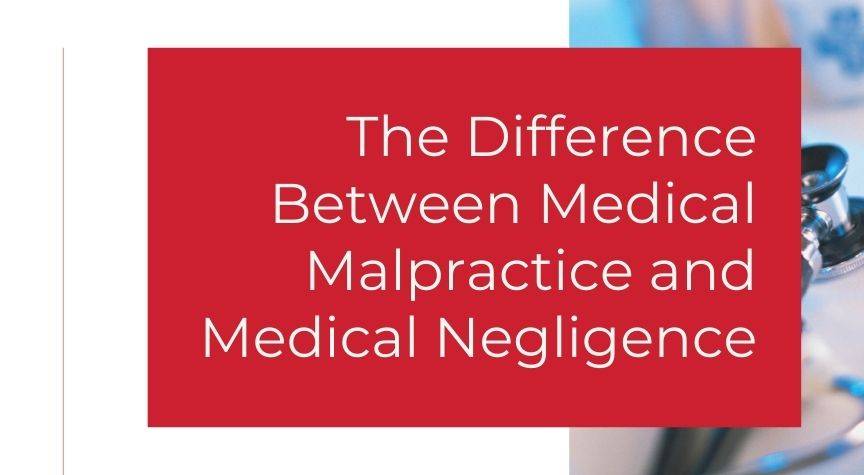Even in a routine checkup with your family physician, the chance for error exists, whether it’s a slip of the needle during a blood draw or a more serious surgical procedure gone wrong. Sometimes those mistakes warrant a case for medical malpractice or negligence. While the line between the two can get tricky (negligence is actually a sub-category of medical malpractice), there are some key differences patients should be aware of.
If you believe you are the victim of harm by a medical professional, understanding the difference between medical malpractice and medical negligence can help you determine the kind of claim you would reasonably be able to make should you pursue legal action. You’ll need to enlist the help of a professional attorney of course, but it’s also a good idea to get familiar with the basics of malpractice versus negligence.
Much of the difference comes down to intent on the part of the medical professional.
Medical Negligence
Medical negligence happens when a doctor causes harm to a patient unknowingly, either through simple ignorance or failing to take action where it is needed. Medication is a common area in which negligence occurs. A doctor could, for example, prescribe a medication without taking notice of a harmful drug interaction, which could lead to anything from mild discomfort to life-threatening effects in the patient.
Even more severe examples can include puncturing an organ during surgery, giving the wrong dose of anesthesia, or failing to provide a patient with adequate aftercare instructions following a procedure.
In any of these cases, the doctor or medical professional may not have ill-will towards the patient or a wish to harm them, but failing to recognize certain factors or take certain actions could lead to life-threatening circumstances for the patient.
Medical Malpractice
Medical malpractice occurs in many of the same settings. But unlike negligence, in the case of malpractice, the medical professional is aware of the potential consequences of their actions (or non-actions) and proceeds anyway.
Surgery is a famous category where medical malpractice is concerned. If the surgical team is in a rush and fails to sterilize surgical equipment properly —which is essentially cutting corners — it is a form of medical malpractice that could lead to infection or worse in the patient. Overprescribing medication, meanwhile, is a form of malpractice that has seen some famous cases over the years involving celebrities like Prince, Elvis, and others. Elsewhere, it’s been suggested that some doctors lack the incentive to properly evaluate whether a patient should receive pain medication, which in some cases can lead to addiction and overdose.
A patient’s circumstances don’t have to be fatal to qualify as negligence or malpractice. However, patients should also bear in mind that not every situation in which they’re unhappy with their medical care counts as either of those.
To press forward with any claim, seek the help of a trusted Florida personal injury attorney who can assist you in determining if your situation warrants legal action, and how to proceed if so.
Ted Babbitt, West Palm Beach, Florida medical malpractice lawyer, has over 50 years of experience holding medical professionals and institutions accountable for their medical negligence. He has obtained several multi-million dollar verdicts and settlements for victims of medical malpractice. Call today and his team will give you an honest assessment of your case and explain your legal options – (561) 375-2841 or fill out this online form.
